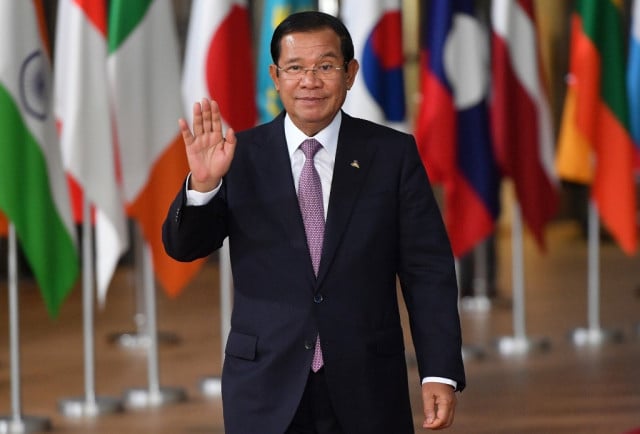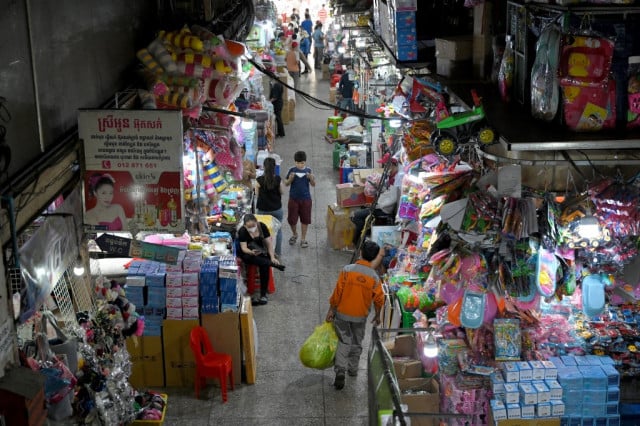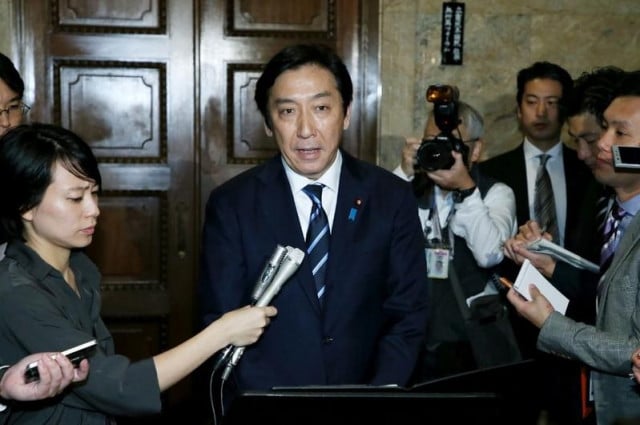The suspension of the “EBA” scheme in Cambodia: Everything but a good idea

- Lim Tola
- May 9, 2019 6:22 AM
The EBA Benefits in Cambodia
Established by the European Union (EU) to support economic, social, human and democratic development in the Least Developed Countries (LDCs), the Everything But Arms (EBA) scheme provides these countries with access to the European Union market without custom duties and quota for all products except arms and armaments.
Cambodia benefits from this system and, according to the EU, the country’s exports of clothing, shoes, processed food products, unprocessed agricultural products (rice), and bicycles have comprised 97 percent of Cambodia’s total exports to the EU in 2018. On exports totaling 4.9 billion euros, 99 percent—that is, 4.8 billion euros—qualified for those EBA preferential duties.
In 2017, thanks to the EBA, the European Union market has amounted to 40 percent of Cambodia’s total exports, making the EU the country’s second commercial partner after China.
Being the main beneficiary of the EBA scheme, the garment industry (clothing/shoes) is the country’s most important industrial sector, employing more than 700,000 people in approximately 700 factories mainly located in the Phnom Penh area. The garment industry generates 70 percent of Cambodia’s exports throughout the world, and contributes 9 percent of the country’s gross domestic product (GDP).
The tax-free access to the European market benefit not only the sector’s bosses but also workers who are mainly young women from the countryside since this entails higher social standards regarding wages, working hours, child-labor prohibition and so on. Those standards are demanded by European buyers eager to give consumers a positive image of their companies.
EBA suspension?
A powerful tool for the development of economic relations between the kingdom and the EU as well as for social development, Cambodia’s EBA scheme is under suspension threat.
On February 11, the EU set in motion a process that could lead to EBA’s temporary suspension since, according to the EU press release issued that day, “EBA preferences can be removed if beneficiary countries fail to respect core human rights and labour rights.”
This suspension could take effect within 18 months following the start of the evaluation process of Cambodia’s performance in term of democracy and human rights.
First a matter of politics
Since the 2018 national election that was marked by the victory of the Cambodian People’s Party (CPP)—but without the participation of Sam Rainsy’s Cambodia National Rescue Party (CNRP)—the EU considers that Cambodia is not moving in the expected direction on the political front and that, over the last 18 months, one has observed in the country a deterioration of democracy, of human rights and of the rule of law.
“Over the last eighteen months…the Cambodian authorities have taken a number of positive steps,” said Federica Mogherini, high representative for Foreign Affairs and vice president of the European Commission, as she announced the start of the suspension process.
“However, without more conclusive action from the government, the situation on the ground calls Cambodia's participation in the EBA scheme into question,” she noted.
If this is a matter of imposing through the threat of economic sanctions the return of Sam Rainsy and the CNRP on Cambodia’s political stage, this strategy’s initiator is on the wrong track. Since time immemorial, Cambodian political men—including Sam Rainsy—have made their arrangements, marriages, divorces and remarriages based on an alchemy that is their own. Who could blame them?
It does often happen that the more one imposes, the less one induces and the more one indisposes. No doubt, it is the case here even more than elsewhere.
Moreover, what are worth the EU threats in view of the Chinese giant’s promises of unlimited assistance?
A strategy of tension is doomed in advance to fail and, if maintained, will bring on the EBA’s suspension.
A social crisis in sight?
Some people claim that this will in no way affect the country’s economy, betting on the Chinese investors’ heightened dynamism in Cambodia, which could create as many jobs as those that would disappear in the garment sector.
Whether this is the case remains to be proven and, if it actually is, it is not sure that this would reassure garment workers finding themselves on the streets due to their factories being relocated in countries having become more advantageous for the sector’s investors.
On the one hand because their skills are not those demanded in construction, tourism, the hospitality industry and the leisure sector, which Chinese investors fund.
On the other hand because wages and social conditions will be reduced. Regarding the cynics who rejoice that the EBA suspension might help put an end to a sector in which prevails workers over-exploitation, one should remind them that this is the most protected and closely watched sector in the country.
Since January, the minimum salary has gone up to US$183 plus various bonuses enabling a worker to earn a minimum of US$200 per month from 16 years old on and without qualification.
Numerous factories paying on a piecework basis make it possible to earn US$300 to US$400 per month. Moreover, workers in this sector benefit from social security and 18 paid holidays in addition to all national holidays.
In other words, the 700,000 garment-sector workers would have a great deal to lose from the EBA suspension, and a serious social crisis could ensue, the more so that they help support their families in the countryside who would see one source of revenues run out.
What the EBA provided them on one hand, the EBA suspension would take away from them on the other.
Some economists predict that, by 2030, Cambodia, with the benefit of growth, will no longer be eligible in direct proportion for this preferential program, and that its eventual suspension might be an opportunity to prepare for this from now on. Easy to say when one lives in macroeconomics but hard to take when one earns a living working in that sector.
Suspension or abandonment?
A null and void political outcome, a potential social crisis: the EBA suspension does not bode well in the short term.
And what can one say of the EU’s long-term economic and political position in Cambodia with the country’s Chinese friends ready to seize every opportunity to acquire more and more portions of the market.
Finally, this raises one question: Would the EBA suspension be an indication that the EU is deserting Cambodia, leaving the future of the country play itself one-on-one with China.
If this is not the case, this is all but a good idea.















